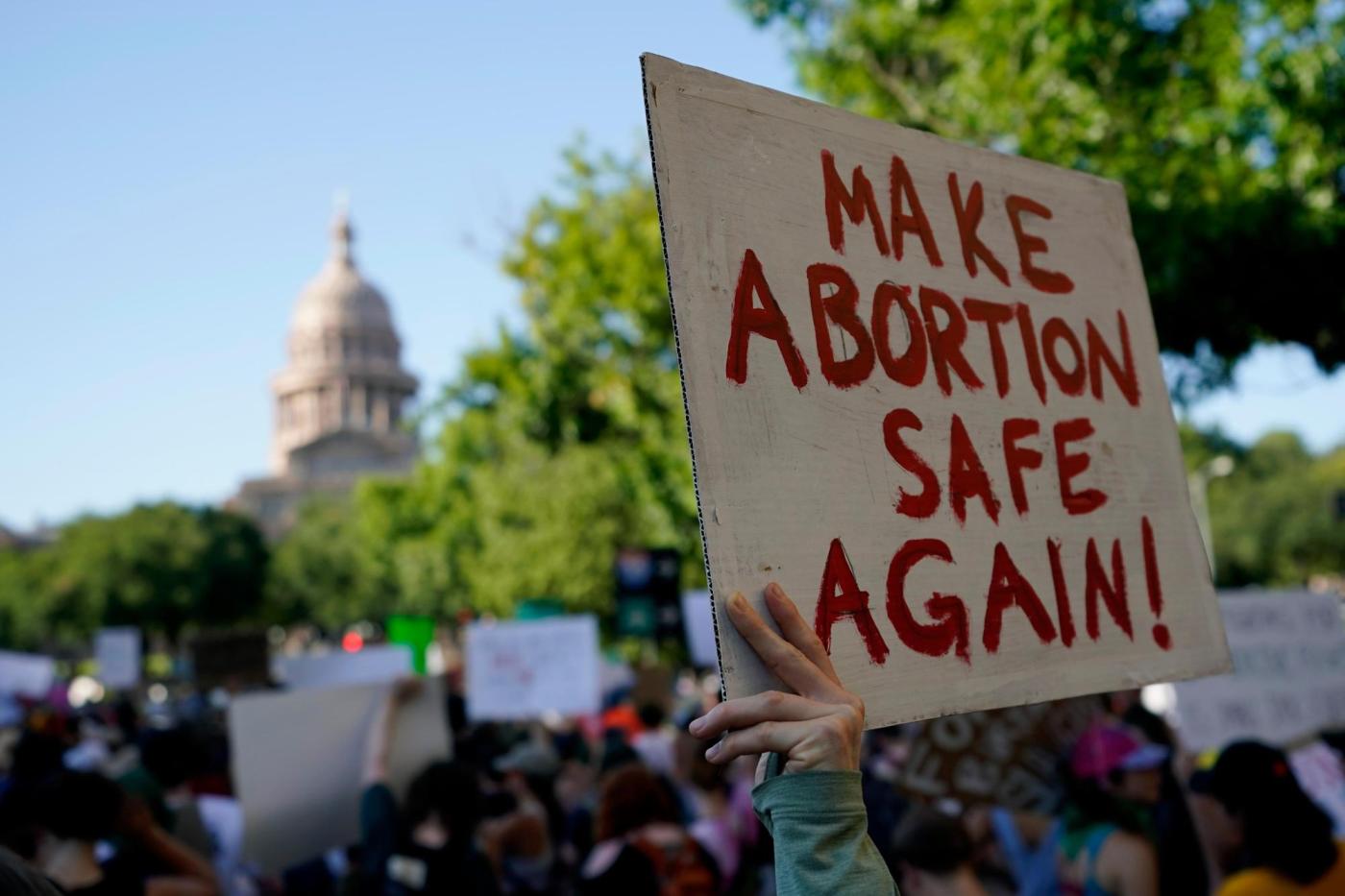
Dobbs ‘is not an end point:’ Abortion advocates detail state of reproductive health in Massachusetts, future threats
While Massachusetts is still adapting to the fall of Roe v. Wade, more threats are coming down the pipeline, abortion advocates warned in a Senate hearing Wednesday.
“Dobbs was a clear and devastating loss, but it is not an end point,” said Kathryn Fay, a Brigham and Women’s Hospital doctor and fellow with Physicians for Reproductive Health. “I worry about the loss of Mifepristone, a federal abortion ban, and threats to contraception and assisted reproductive technology — all hazards that will transcend state lines. Abortion without stipulation is life saving, necessary, compassionate, essential health care.”
Sen. Elizabeth Warren, joined by Sen. Ed Markey, chaired a Senate Banking, Housing, and Urban Affairs Committee hearing in Boston on the economic and health impacts of threats to reproductive rights. The hearing featured Massachusetts Attorney General Andrea Campbell and representatives from the ACLU, reproductive advocacy, and physician groups.
Since the Supreme Court’s Dobbs v. Jackson overturned the national right to an abortion, speakers said, Massachusetts instilled the nation’s first “Shield Law” to protect access for providers and out-of-state patients. Healthcare providers have since seen a “growing tidal wave,” one advocate said.
“Overall, there was an estimated 4,500 more abortions provided in the Massachusetts formal health care system in 2023 compared to 2020,” said Fay. “Last year, one in 15 people who received abortions in Massachusetts were from out of state.”
The growing numbers mean more a greater load of appointments and more strain on providers’ funding and the health system in the state, Reproductive Equity Now President Rebecca Hart Holder said. Massachusetts residents, particularly in “access deserts” in Western and Southeastern Massachusetts, face greater barriers, increased wait times, and are more often turned away, she said.
“Restrictions on abortion care throughout pregnancy also continue to send patients out of our state for care,” said Hart Holder. “All the while, severe maternal morbidity has nearly doubled in Massachusetts from 2011 to 2020, with Black mothers experiencing the worst rates of complications. Abortion access is intrinsically connected to maternal health.”
Data shows a disproportionate impact on low-income people, BIPOC communities, LGBTQ people, and rural communities, speakers said.
Abortion patients she’s treated from out of state have cited fetal anomalies, abusive partners, housing instability, assault, contraceptive failure and many other reasons, Fay said.
Beyond the current threats cited by speakers, national efforts threaten care in Massachusetts. These include proposed federal legislation that would impose a national 15-week abortion ban with limited exceptions, “Life at Conception Act” to establish the “personhood” to fertilized embryos or fetuses, proposed use of the 1873 Comstock Act to prevent the mailing of abortion pills, and the legal challenge to the abortion medication Mifepristone before the Supreme Court.
Several tactics, like legislative fetal personhood efforts, pose threats to contraceptive use, like the use of IUDs to prevent the implantation of a fertilized egg, speakers said. Other efforts create inroads for attacks on gender-affirming care, they argued.
Several speakers cited the state’s Abortion Legal Hotline, run in partnership with the Attorney General’s office, Women’s Bar Foundation, ACLU of Massachusetts and law firms, to provide patients and providers with information and legal advice regarding reproductive rights throughout the country.
Related Articles
Massachusetts mifepristone stockpile sits dormant after Maura Healey spent nearly $700K
Massachusetts man accused of tricking girlfriend into taking pills to end pregnancy
The number of births continues to fall, despite abortion bans
A comment from Trump and GOP actions in the states put contraceptive access in the 2024 spotlight
Lowry: Harrison Butker right about men and women
Speakers discussed several ongoing legislative efforts to expand protections for reproductive healthcare, including Markey’s “Right to Contraception Act,” which federally protect the use of contraceptives like IUDs and the Plan B pill, and the “Location Data Act” filed in Massachusetts, which would protect location data of patients from use by actors in other states.
“No one stopping just overturning Roe,” said Warren. “No one stopping with, just there are 21 states that have restricted abortion. This is a juggernaut that’s moving. And it is urgent for us to fight back.”


